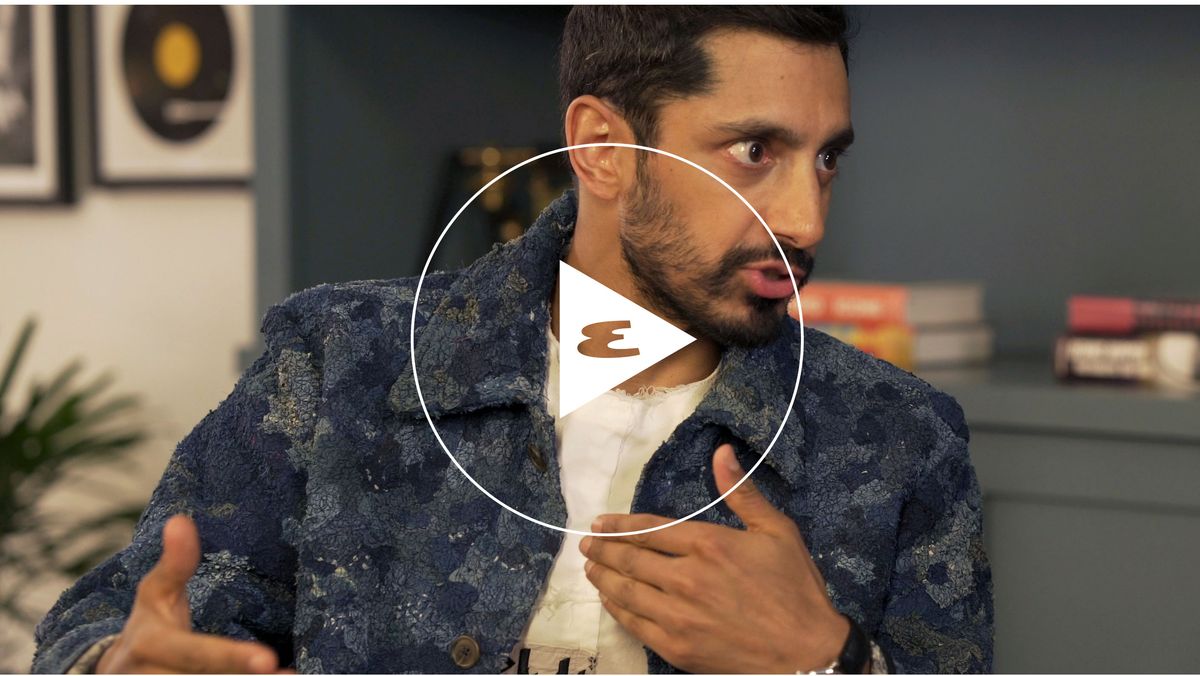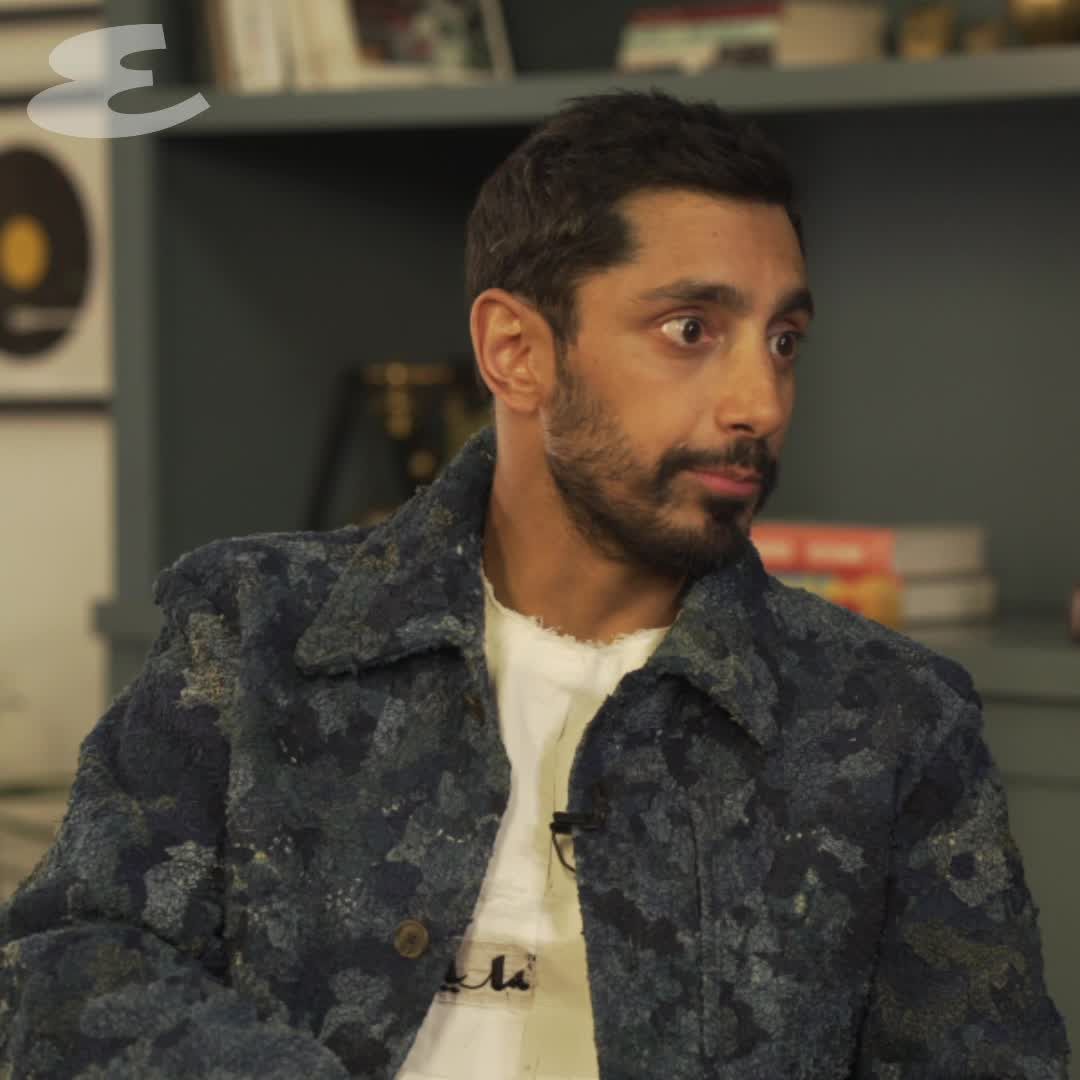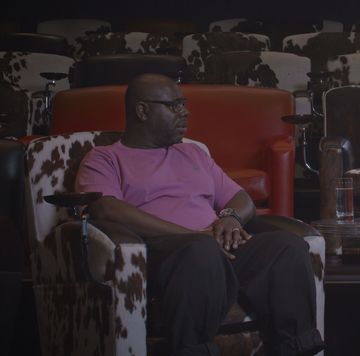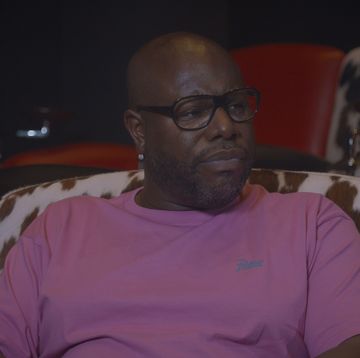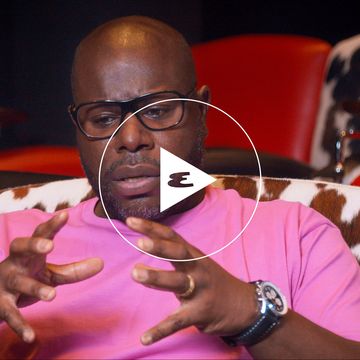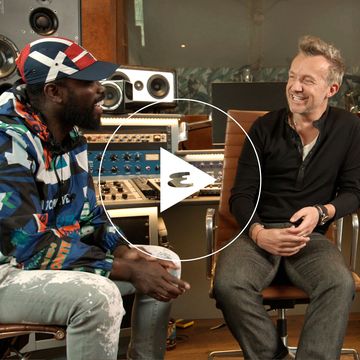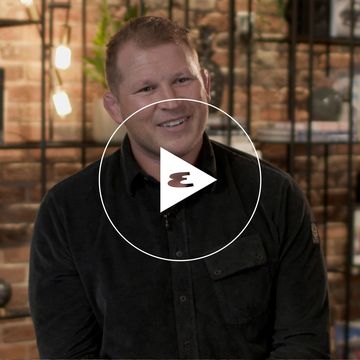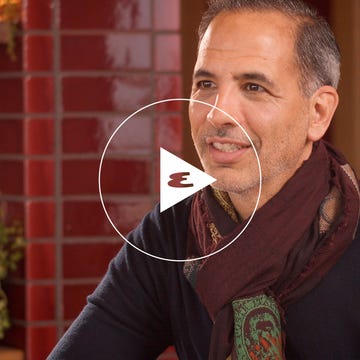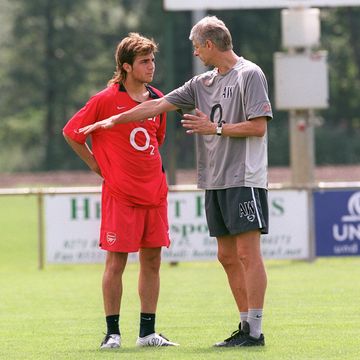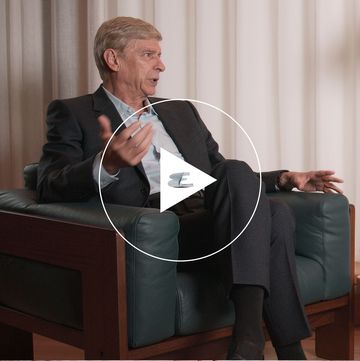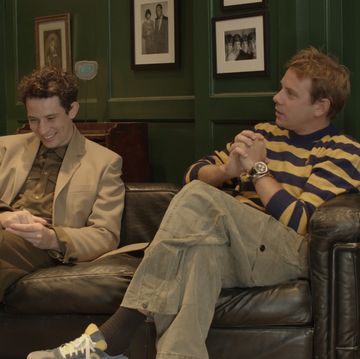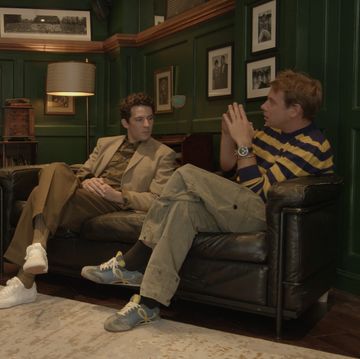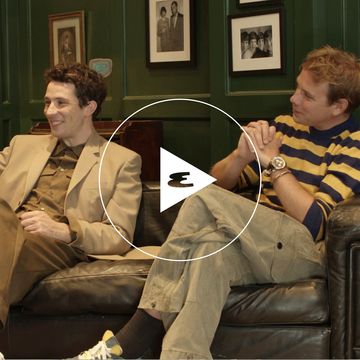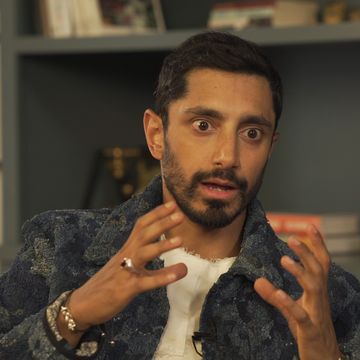Riz Ahmed is one of Britain's most exciting actors. We're all agreed there. He's also one of our best rappers and producers, and one of our most thoughtful and progressively minded people full stop.
So when Ahmed spoke to author and Esquire editor-at-lage Sanjiv Bhattacharya as part of this year's Esquire Townhouse @ Your House with Breitling event, the conversation ranged around all kinds of topics: his career, his changing attitude to the roles he picks, why Britain and Britishness isn't what you think they are, how Michaela Coel's I May Destroy You inspired him, and how being productive for the sake of it is a trick capitalism is playing on you. These are the nine big takeaways from Ahmed's Townhouse talk.
Lockdown wasn't entirely bad
"I like to be doing a lot of different things, I like spinning lots of plates – it's kind of been my MO for a long time," Ahmed said. "So actually being forced to sit still, sit with myself, it was a challenge. For a lot of us, we've just been on a treadmill incessantly for such a long time, the pace of life just seems to get faster and faster. So being forced to kind of sit still – having the privilege to be able to sit still, and not have to go to work, like a key worker – I think it forced me to face certain things."
There's a lot of overlap with his character in Sound of Metal, a drummer who starts to lose his hearing and has to confront his life choices: "He's a workaholic artist who is confronted with a health crisis and is forced to go into a kind of lockdown, a kind of purgatory where he's forced to sit with himself."
Toxic productivity
That vague sense of guilt you might have felt when you weren't able to do very much wasn't your fault.
"I think that's kind of what we're taught by this broken capitalist system, basically!" Ahmed said. "That you're only worth anything if you're producing something rather than recognising our inherent self-worth and the inherent worth of others and how those two things are overlapping, and how wellbeing is overlapping."
After all the trauma and change of the last seven months, we can't just step backwards, Ahmed said.
"We talk about going back to normal – nothing's going to bring those people back, and the idea that their deaths [are] might be in vain is hard to stomach for a lot of people. And it shouldn't be in vain. It should be a wake-up call about how we run our society, what we value. Do we value getting the economy going, and paying people to go to restaurants when we know it can cause another spike? Or do we value human life? How are we measuring our success as a society?"
Heartbreak and The Long Goodbye
Ahmed's first album under his own name dropped in April, and poured the attitude Britain has toward brown-skinned Muslim men like him into a breakup album: "Suddenly the locks have been changed on you and you've been told to pack your bags and get out."
While the process can be painful in the same way as a particularly harsh dumping – "you do feel that kind of hurt, you do feel almost those different stages of grief that you would feel when you're going through a breakup" – there's a happier, healthier way to be on the other side.
"Ultimately you come to a place of self-love, of realising you don't need the other to validate you."
Britain isn't what the far-right says it is
Ahmed still loves Britain and being British, though; it's just that the definition of what Britain and Britishness is needs looking at.
"Our idea of Britain can be as narrow or expansive as we want. In can be mono-racial, it can be Shakespeare and it can be a nostalgia [for a time] that didn't contain people like us within it, or it can be as expansive as the reality that built Britain, which spans across the globe. For me, to say 'I love Britain' is akin to saying 'I love this planet'. I think it's a globalist position, not a nationalist position."
Ahmed's Britishness is about recognising this bit of land only exists the way it does because of the whole world.
"When I'm saying I love Britain, I love everything about Britain: everything that makes Britain Britain, and that's a lot more than just Shakespeare. It's something that's as rich as human history and human civilisation is."
Optimism is allowed
It's a bleak time for a lot of people, but Ahmed's "not ready to pack it in just yet".
"You can be blindly optimistic, or you can have your eyes open and understand what kind of sacrifices and challenges and battles we might have to face in order to get to that good outcome."
In a way, the generally upsetting vibe can be a galvanising force.
"There is something quite spurring about shit falling apart, and clarifying your own priorities, crystallising your own views," Ahmed said. "A healthy place to be is using your art to work out your identity, and using your identity to work out your art. I think the two are always in conversation; they have to be."
The industry is changing, if slowly
The pool of roles for brown-skinned actors is growing, but Ahmed's focus is on forcing it even wider.
"There’s that binary way of viewing brown men, that you’re either the clown or the savage: you’re either the guy who couldn’t get the girl, the tech guy, or the terrorist who’s gonna cut your head off and drink your blood," he explained. "So trying to move us into a space where we can just be a man, you can be strong, but sensitive. That’s actually a taboo space to try and explore."
Sometimes that change comes from within
That came after a recent moment of clarity about what he'd been doing in his career to that point.
"What I realised was that I would look around at some of the roles that might be out there for us, often didn’t contain the complexity of our own real lives," Ahmed said. "It occurred to me after spending 15 years of my career wearing masks and playing other roles in order to kind of stretch culture, it occurred to me that maybe I’m not stretching culture as much by doing that as much as maybe contorting myself to fit into these pre-made moulds – and maybe a way of stretching culture is to kind of contribute new archetypes to culture, to give yourself and the complexity of your own experience to culture."
Now, Ahmed approaches roles feeling that it's "a quietly revolutionary act to put more and more of yourself into something".
Competitive creativity is a trap
What all this adds up to is the realisation that, as Ahmed puts it: "We’re not individuals; we’re all a link in a chain."
"It’s something that’s dawned on me as I’m approaching my forties now. Often when you start out you have this view of ‘I’m going to do this’, ‘I’m going to do that’ and I think more and more about where we can get to collectively? How can I knock the ball a little further forwards, and other people knock it a bit further forwards, and I’ll meet you further up the pitch? Because you do start to see how it’s a collective conversation."
The idea that you have to get your elbows out to be the first is a nonsense, in Ahmed's eyes.
"There’s this myth isn’t there, this capitalist myth, this Ayn Rand kind of image of the man who comes down – it’s Steve Jobs, it’s Moses, it’s someone coming down with the gospel. But it’s a conversation, we’re all standing on the shoulders of the people who come before us."
I May Destroy You is the future
Michaela Coel's recent series was a gamechanger for Ahmed: "[It] blew my mind, inspired me so much on so many levels."
"It’s just unapologetically her... and because she’s made it so personal it contains within it this complexity that goes far beyond representation, it’s her presentation of her soul. And you get an amazing piece of TV. It does more in half an hour than most shows do in three… It’s kind of groundbreaking as well to see Black British life portrayed with that nuance on TV."
In spite of everything, Ahmed ended with a note of optimism: "I think it’s an exciting time, in parallel to it being a terrifying time."
Like this article? Sign up to our newsletter to get more delivered straight to your inbox
Need some positivity right now? Subscribe to Esquire now for a hit of style, fitness, culture and advice from the experts
